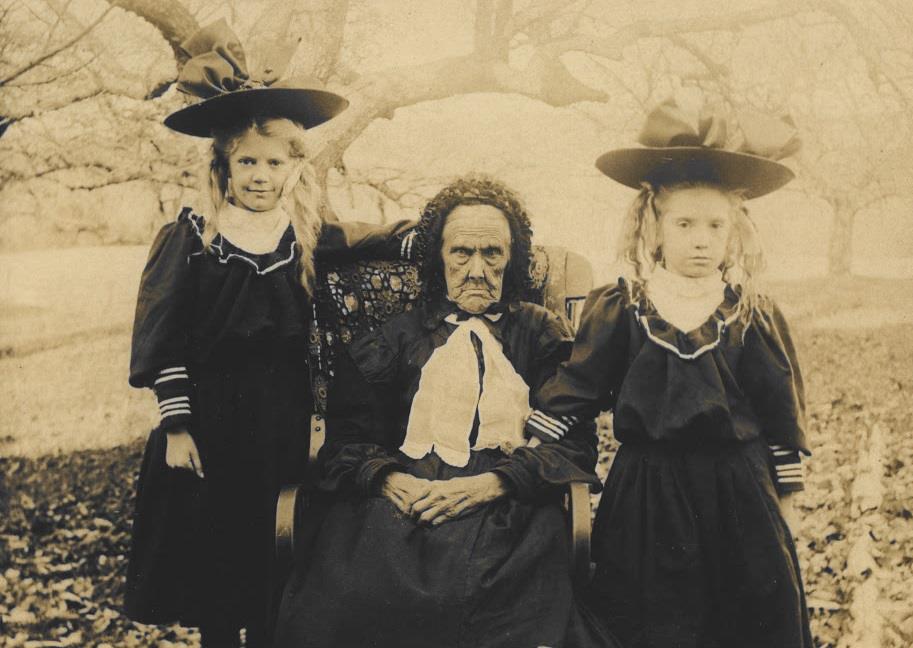by Jacob Sponga

Mary’s grandmother was a patron of the bizarre. She always had been. Born Gretchen Muller into a sepia-stained world, her fantastical accounts of the everyday mundane never ceased to delight Mary as a child.
One story stayed with her as an adult. Grandma Gretchen had told a giddy Mary the story of her arrival in the New World. Grandma Gretchen, for all her sixty-three years that followed the alleged incident, did not waver in her account. She did not giggle like Mary.
In youth, Grandma Gretchen enjoyed the subtle pleasantries of a childhood in the Prussian countryside: she didn’t think of heavy industry or the next Kaiser or if she’d make it to the 20th century. She fostered most of her concern into a boy named Fyodor Petrovich, who was pink and doughy and hopelessly infatuated with Mary’s grandmother as she was with him. They were thirteen. Grandma Gretchen would recall to Mary, with vivid detail throughout Mary’s childhood, just how young love catapulted her overseas to the Americas on one fateful evening.
Mary, sitting by Grandma Gretchen’s feet, lounging about on the porch floor, would innocently plead, “Grandma please, tell me the story about the butterflies.” Gretchen would peer down at Mary with piercing eyes, a bold seriousness, and would tut-tut.
“Grandmother, please!” Mary would beg, looking up with eyes wide enough to appeal to
heaven. Gretchen would have no choice but to take her up on her knee.
“You know how I have told you tales of dragons, knights, kings, other wild fantasies?”
Mary would bob her head eagerly, looking up at her wrinkled grandmother with the purest reverence as children do.
“This is no such story,” Gretchen would go on. “This story happened to me.” Mary’s eyes would widen more, even though she’d heard the story many times. Gretchen would go into the story with an iron conviction that was absent from her other, fantastical tales. Maybe this was what gripped Mary so firmly.
“When I was just thirteen, say, still much older than you, Maria, I was infatuated with a boy named Fyodor Petrovich. His father was a doctor and came to our village in search of God. I don’t know if he found God, but Fyodor and I found each other. We truly believed we were in love, fatefully linked together by the stars above our heads. We were bold, too bold Maria. We were so bold, so careless, we met in the night, under the moonlight, and slept in the field. Fyodor’s father, Pyotr, was appalled by his son’s passion. Rightfully so, Maria, rightfully so. He forbid Fyodor and me from seeing each other. So, we had no choice but to disobey them, in our proud youth.
“We were going to run away, going to escape to France. We were going to Paris, and Fyodor was going to become a general, he claimed. What sorry fools we were. We decided we were to meet one night, outside of town, in a wheatfield by candlelight. With me, I took my father’s watch, glimmering gold, his most esteemed possession, which he kept in a lockbox to which I found the key. I would pawn it; I would sell it to get to France! Maria, never sink so low as I have.”
Maria would go on like a bobblehead, looking up fanatically at Gretchen as she continued.
“I took all my belongings wrapped in linen. I held the heap of linen under one arm and held my candle in another. Maria, this is no way to behave. When my mother and father had gone to sleep, and all the lights were out, I slipped through my window into the vastness of the universe.”
Gretchen was more aware than almost any other person on earth of the true vastness of the cosmos.
She would go on to describe to Maria something so bizarre that it almost made Maria’s sepia-stained head explode. She told Maria, in vivid detail, of a hulking, scarlet red stove, suddenly hovering overtop her head in the moonlight. It glowed a beautiful purple with a tranquil, soothing quality. The stove was suspended in the air by two large angel wings, insisted Gretchen. The stove descended with grace and set itself down on the earth gently in front of her. Gretchen was mesmerized. She thought she was about to meet God. Instead of God, when the oven door opened and emitted a brilliant orange light, Gretchen met four gargantuan, intergalactic butterflies. Gretchen was swiftly whisked inside of the stove. Inside was warm and pleasant. Gretchen felt horribly sleepy, and she felt guilty for being so sleepy on what she presumed to be an ascent to heaven. She took the big butterflies for angels.
What Gretchen did not know, was that the extraterrestrials tried to communicate with her. “Good evening,” one of them said to her. Gretchen didn’t say anything back, because she did not speak English yet, and was becoming a little afraid that God wouldn’t speak German. The butterflies took her for a moron. They were sent out to pick up an English-speaking girl, not a mute one. They did not know they had been in Prussia. They were drunk. So, they accepted an inevitable ticket, lowered the stove a little, opened the oven door, and gave Gretchen a shove. She thought she was falling to hell. She watched the purple glow fade.
“I tumbled Maria, for an eternity. I tumbled so far. And by God’s grace alone, I was in the air one moment, and in water the next! I landed in the lake!”
Mary would gasp and awe and giggle. Her grandmother was a brilliant orator.
“And that is how I came to be here, I landed in Canada. I was still clutching to my linen heap when I swam to the shore of Lake Cherub. That is how you came to be in Canada, Maria. You and your sister, Anna, and your father. You were destined to be here. For my sins, Maria, they took the watch. I was never again reunited with my mother and father, or Fyodor.”
Mary was now nearly the same age as her grandmother was when she had passed at seventy-five. She was less wrinkled. When Gretchen’s time came, not long after Mary’s tenth birthday, she went off along with millions of her generational compatriots into the desolate corners of history, forgotten through obsoletion by big machines and hard science.
The story kept its grip on Mary as she aged. It lingered in the back of her mind, weighing on her conscience, pushing her somewhere.
She was on Lake Cherub, staying in her family’s cottage. She was there alone. There was a photograph on the mantlepiece of Grandma Gretchen, showing her age, sat between Mary and Anna. Mary did not smile in the picture, done up in her best clothes, likely to match the sturdy and wise gaze of their esteemed and beloved grandmother. Her grandmother looked full of stories. She could hardly recall anything about Gretchen outside of the stories they shared.
It was May. She went to Lake Cherub to get away from family, country, and obligation. The cottage was usually empty. It was built a few miles from where Gretchen had emerged from the water on one chilly spring night, somehow still clutching her soggy linen bundle. Gretchen purchased it when she heard the owner had passed. The cottage, placed peculiarly far off the road, was her saving grace. She had stumbled through the forest, maniac and delirious and on the verge of hypothermia before collapsing at the doorstep. The owner, investigating a thump and a desperate groan in the night nearly fainted when he discovered a bruised and blue German girl lying on his doormat. Gretchen’s journey through life from that point on became a lot less prophetic and a lot more mundane.
Gretchen had taken Mary, once, without Anna, to the lakeshore where she had pulled herself out of the icy depths of hell years before. There was a small alcove where the water was warm and shallow. The forest edge was further back, creating a quaint beach.
Mary rose from her bed one night in a daze. She left the cottage with a lantern in her nightgown. She made her way through the woods, quietly and quickly in her stupor. Her body was old, but she was healthy, still strong, and had no trouble making her way down a familiar path to the lake and around the lakeshore to a fateful spot. She arrived at the alcove. One-hundred and thirty-eight years apart, Mary and Gretchen stood congruent, facing the dark water which reflected them the essence of an enigmatic life. As she stood out on the beach, lantern flickering, Mary felt a soothing purple glow above her. She didn’t look upwards. Into the sand next to her feet, dropped a gold watch. She heard the beating of wings.
